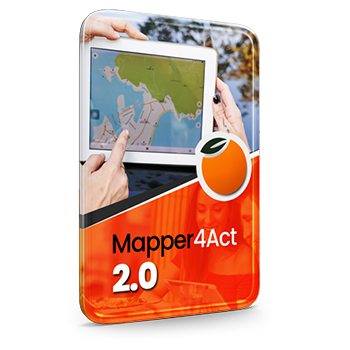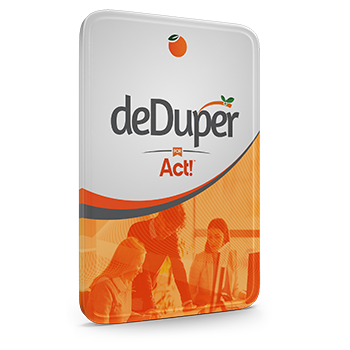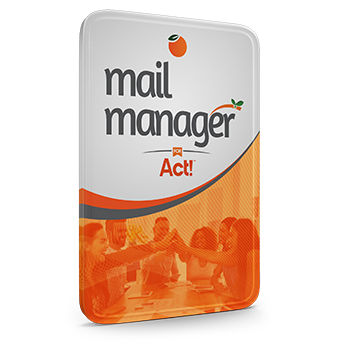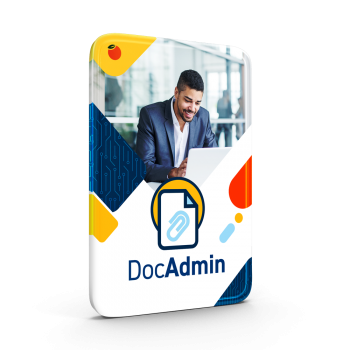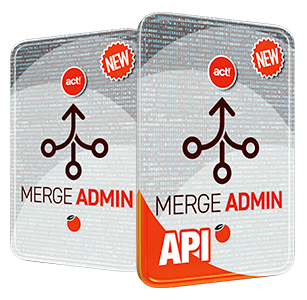When businesses or service professionals first get started, the temptation to use Outlook as more than an email tool is perfectly understandable. Outlook has, after all, a serviceable contact manager that includes a customer list and calendar that is suitable for most people's basic needs. The trick with using Outlook is not to avoid starting with it, but to know when to stop. Outlook is not a CRM, it's an email application with an organizer bolted on, so from a sales & service perspective, it has a low ceiling.
For those using Outlook as their CRM, the ceiling may not always be visible, so let's consider the following limits:
- No reporting: As Outlook does not allow you to record the outcome of a meeting, it's impossible to report on your interactions with prospects & customers. For instance, did you reach that person you called, or did you leave a message? How many calls did you complete last week versus the week before? When was the last time you actually met with a prospect?
- Pipeline: Outlook was never designed as a sales tool, so expecting features like a sales pipeline to track business opportunities is unrealistic. Pipeline tools allow you to record and plan follow-ups for business leads, as well as calculate & report on their estimated value. Without these tools, users are limited to calendar follow-ups, where leads tend to go cold after a few unsuccessful connection attempts.
- Integrations: Integrating online services like web forms and appointment-setting services is tricky since most personal versions of Outlook don't have an API with which to integrate. With a modern CRM like Act!, you can have online services feed directly into your CRM with automatically scheduled follow-ups and other triggers. Outlook can only receive email from these online services, each requiring you to stop what you're doing, manually enter the data into Outlook, and then schedule a follow-up.
- Quoting: Most businesses sell products and/or services, which invariably requires quoting your prospects. If you use Outlook as your customer manager, you're likely forced to use MS Word or Excel as your quoting tool. Read the four reasons to avoid using those programs for quoting.
- Marketing: Everyone wants new business leads, but if online sources don't feed into Outlook, you're likely forced to use email marketing. Outlook may be fine for one-to-one emails, but it's a weak substitute for marketing. For instance, Outlook has no compliance tools, meaning you'd immediately be in violation of the CAN-SPAM Act! for not having an opt-out link, and increase the likelihood of worsening your sender reputation or getting blacklisted outright. From a feature standpoint, Outlook has the following other limitations for emarketing:
- Does not have an adequate email designer
- Cannot be configured for drip emails, or any other automated function
- Has no feedback on click-throughs, opt-outs, or reporting of any kind.
- No advanced tools like response-driven nurture marketing, landing pages, or server-side suppressions
- Segmentation: Any CRM worth its salt allows you to segment your contacts by industry, status, value, location, you name it. This not only is useful for marketing, but for understanding your data and contacts. A financial planner that can't group their customers or prospects by value or profession has little to offer them in terms of insights.
- Customization: buying clothes off the rack is folly, but using a product that supports virtually no field or layout customization isn't just unfashionable, it's limiting. Every industry has its own unique data set priorities, so assuming the default layouts that work for mortgage brokers would work equally well for realtors is optimistic. For a CRM to be useful it must support tailoring to users needs, and that level of customization is not supported in Outlook.
- Sharing data: Unless you've invested in a groupware version of Outlook Exchange, the calendar and contact data is not shareable. And if you have invested in this setup, refer to the previous points for why to not use Outlook as a CRM.
Using Outlook for more than it was intended may seem like a time-saver at first, but continuing too long can cost you more in conversion time & expense than you're saving. This is why we recommend choosing a product like Act! CRM that has none of the limits listed above, and can grow with you for only $30/month. It comes equipped with marketing automation out of the box, the ability to easily add users, and a robust market of add-ons that can integrate online services and apply industry-specific themes as needed.
Ask yourself if it is really worth limiting your business growth for such small savings - even in the early going?



